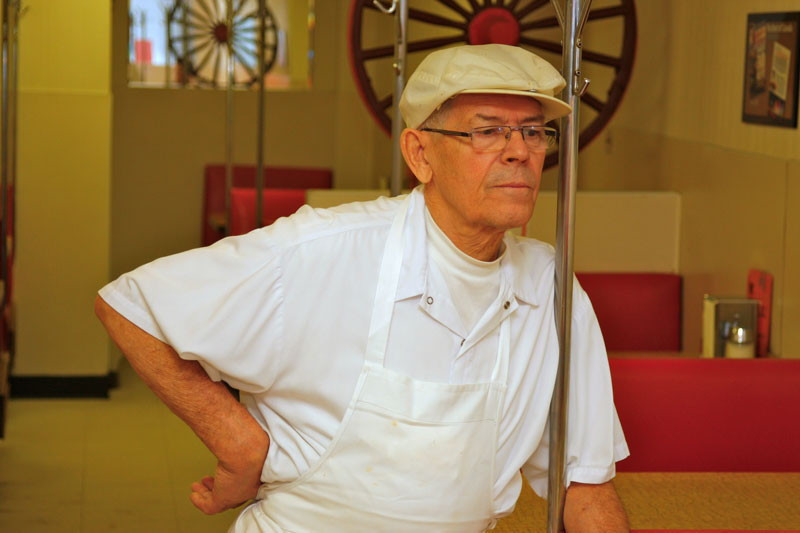Diners in the ‘Peg
Some restaurants come and go, but with their reliable menus and comfortable atmosphere, diners are here to stay
While chain restaurants can be nice because you know what you’re going to get every time you step into one, there’s no beating the unique atmosphere of a Winnipeg diner. While some new restaurants tend to flicker in and out of existence, there are diners in the ‘Peg that have been around for 50 years.
Diners are here to stay,” said Bill Parafidis, owner of The Nook Diner on Sherbrook Street. “In Winnipeg, we’re blessed with all our greasy spoons.”
Diners rose to popularity in the 1950s as places for youth to go and have a milkshake – or a ‘malted,’ as they were known. These days, diners are still youth-friendly, though some serve alcohol.
Diners are just restaurants with a more personable feeling, said Karen Ashley, who has owned and operated Wanabees Diner on Broadway since 1993. At Wanabees, it’s not uncommon to see a table of police officers eating there during the day, a testament to the attractiveness of a diner.
A constable eating with three fellow officers, who requested his name not be used, said he prefers diners because they “aren’t commercial.” He likes Wanabees because they serve “kub” or kubasa, a garlic sausage.
Ashley has an equation for why diners are so popular.
“Diner equals comfort,” she said. “Ninety-five per cent of my regulars order the same thing every time.”
It’s not only the comfort of being able to order the same thing, but the food itself is comforting.
“January was my busiest month,” she said, referring to the blistering cold month Winnipeg experienced. “Everyone ordered comfort food.”
Louis Mathez has worked at the Wagon Wheel on Hargrave Street for 50 years. He’s seen a lot of business come through in that time.
“People like the personal feel,” he said. “A diner is smaller and usually the owner does the work. A restaurant’s owner might manage it but not produce food.”
Mathez took over the diner from his dad and has been cooking over the same grill for the entire 50 years. He defines a diner in terms of what it produces.
“You have to have good food,” he said. “(And) you have to try to be as quick as you can.”
The Wagon Wheel promotes itself as being the “Home of the Clubhouse.” Mathez prides himself on their clubhouse, but acknowledges that the good food has to come at a good price to appeal to everyone.
“You take all walks of life,” he said. “A doctor or a guy who bums money on the street. They’re respected like anyone else.”
The Winnipeg Sun’s restaurant reviewer goes under the moniker “Discreet Diner” (DD) and has a lot of experience eating in diners. The DD is the pen name for a rotating cast of reviewers.
The current DD identifies diners as “places where the no-frills menu remains largely unchanged over the years, and where atmosphere counts for a lot more than actual décor.”
Angela Forget opened The Black Sheep Diner early in 2008 and tries to make the décor as appealing as the food. The Black Sheep features art from local artists on the walls that gets renewed every three months.
“The culture will keep them there,” she said, referring to the staying power of diners. Traditional diners tend to live up to the greasy spoon stereotype, but Forget believes in an organic, good food experience.
“Diner-style food has sort of a bad rap now,” she said. Forget created a menu based on locally-grown organic food that’s proven to be a success.
Forget says the fact that the owner is usually in the back is an appealing point for customers.
“I’m uncomfortable with businesses where the owner’s never around.”
While Forget is expanding what being a diner means, the more traditional style is undeniably popular.
“Diners attract everyone,” said The Nook’s Parafidis. “You see cops and robbers eat here all the time.”
Published in Volume 63, Number 20 of The Uniter (February 12, 2009)






